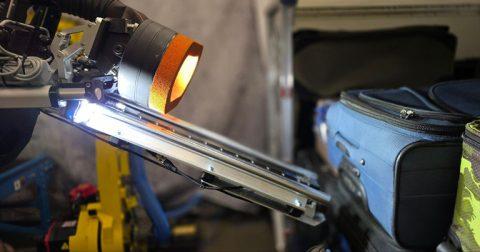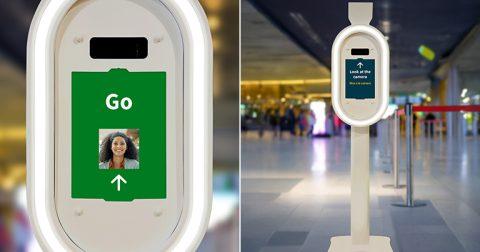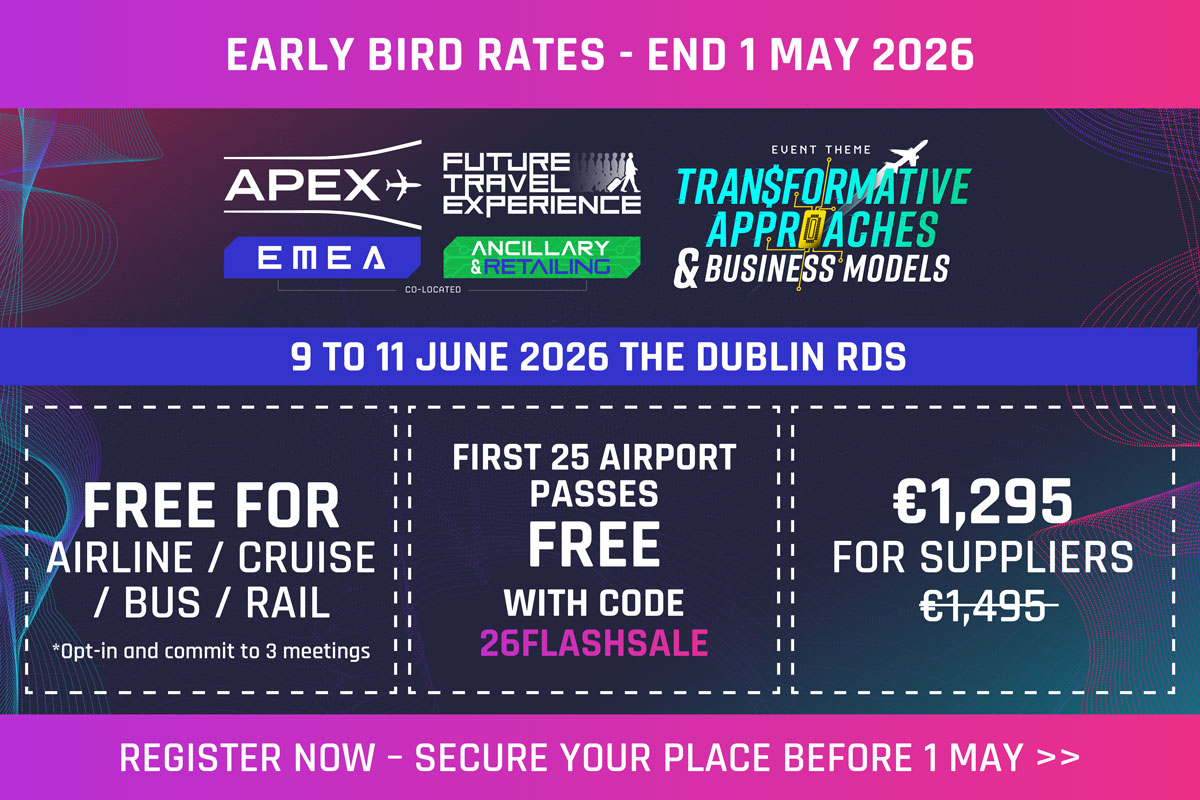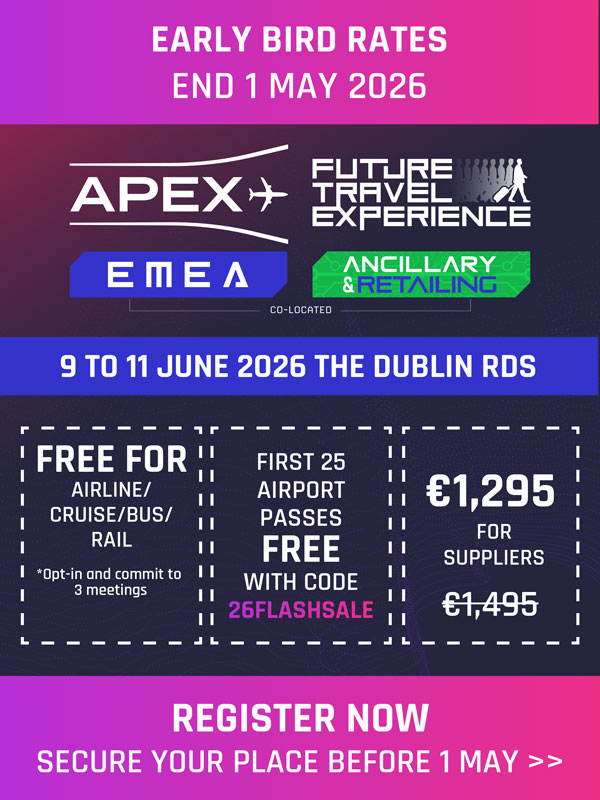An undoubted highlight of the FTE Global 2025 conference agenda was the finale keynote interview with Scott Kirby, CEO of United Airlines, which was moderated by Brian Sumers, Editor of The Airline Observer. In a powerful keynote conversation, Kirby shared United’s ambitious mission to become the best airline in the world. From becoming the first major U.S. airline to offer free high-speed Starlink Wi-Fi to as of this year leading the world in IFE seat-back screens, United drives to set the highest standard for passenger experience. Kirby offered an inside look at the strategy forging this incredible transformation, including the cultural and operational shifts that are rapidly accelerating the airline’s progress. The session highlighted how United’s investments in people, product, technology, and innovation will reshape the future of aviation from the inside out. View the full video below. Plus, see more of our inspiring FTE Global 2025 conference video content here.
Elevating the passenger experience
United’s recent surge in customer satisfaction has not happened by accident. Kirby spoke passionately about the airline’s drive to win “brand loyal” customers through consistent investment in people, product and technology. “We’re focused on giving an array of choices to customers – from those who want Basic Economy to those flying Polaris,” he explained. “It’s not just about schedule and network. It’s about great technology, great products like seatback entertainment, great service, and most importantly, how our people treat customers. There’s nothing that matters as much as that human connection when you walk on an airplane.”
This human focus has been matched by unprecedented investment in the onboard experience. United became the first major U.S. airline to roll out free, high-speed Starlink Wi-Fi, and as of this year, it now leads the world in inflight entertainment seatback screens. Kirby described technology as both a differentiator and an enabler of emotional connection: “If you do all that right, you can get customers to choose your airline – not because it’s cheaper, but because they want to fly with you.”
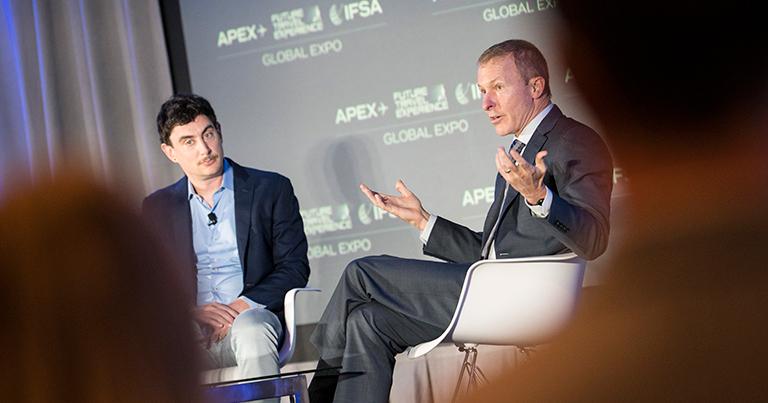
A new approach to customer investment
Kirby also shared United’s budgeting philosophy, emphasising that the airline now ring-fences annual funds specifically for customer experience improvements – a notable cultural shift for the industry.
“At most airlines, when costs go up, the first thing they cut is customer investment,” said Kirby. “We do the opposite. Every year we consciously spend more for customers – better food, better digital tools, better onboard products – because collectively these things win brand loyal customers. You can’t prove the ROI of a better chicken salad, but when you add it to great WiFi, great technology, great service, the whole is greater than the sum of the parts.”
Competing on the global stage
Kirby sees United – alongside Delta – as one of only two “brand loyal” U.S. carriers positioned to compete beyond domestic borders. He highlighted the imbalance in global aviation, noting that two-thirds of long-haul seats to and from the U.S. are operated by foreign airlines, even though most passengers are Americans.
“International airlines are often arms of the state – they fly with government support,” Kirby explained. “We have to compete profitably. Now that we’ve built this strong U.S. customer base, the next step is figuring out how to be truly competitive globally, so when someone flies to the Middle East or Asia, they’d rather fly United than anyone else. That’s the mission – to build an airline all Americans can be proud of.”
This ambition is already reflected in United’s network expansion. Under Patrick Quayle, SVP of Global Network and Alliances, the carrier has launched dozens of new international routes, experimenting with emerging markets while maintaining discipline around profitability.
“We’re willing to fold a losing hand,” said Kirby. “When something doesn’t work – like Bergen – we fly it one season and move on. Discipline matters.”
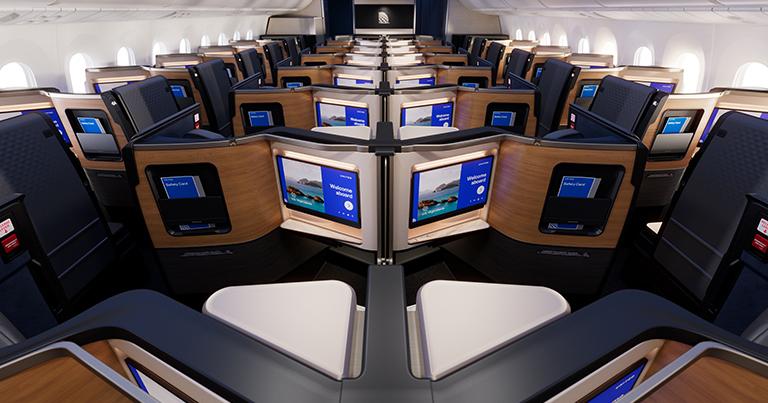
Connected media and the digital future
Kirby also teased progress on United’s Connected Media platform, which leverages Starlink WiFi and seatback IFE screens to deliver personalised content and targeted advertising. While he declined to share performance metrics, he confirmed the platform is “incredibly successful” with early brand partners. “It’s not just ads – it’s engagement,” he explained. “We know what our customers care about and can connect them with relevant offers in real time. And then there are the fun touches – like live airport taxi maps on seatback screens. They’re small things, but they make people say, ‘This airline gets me’.”
Beyond revenue, Kirby views digital innovation as central to strengthening emotional loyalty. “People think of the app or the IFE map as technology,” he said. “But what they really represent is how we care for customers – making the experience seamless, intuitive, and just cool.”
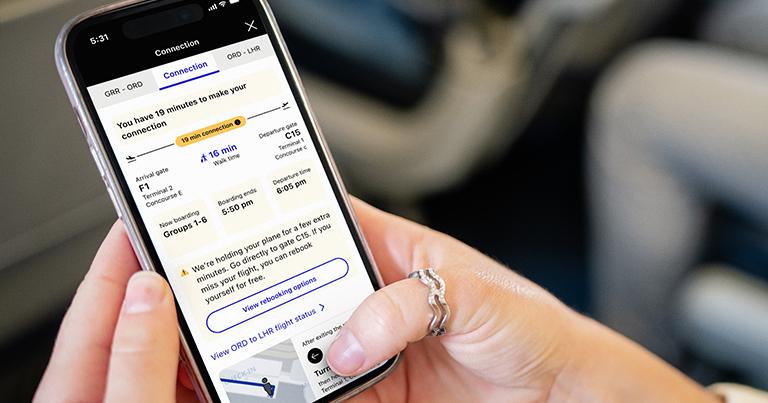
Industry dynamics: a market in transition
The conversation also turned to the changing U.S. airline landscape, with Spirit Airlines’ bankruptcy and turbulence among ultra-low-cost carriers (ULCCs). Kirby did not mince words about the challenges facing that segment. “You can’t have a business model predicated on screwing the customer,” he said. “It’s fundamentally broken. Customers have voted – they don’t like that product. There will always be price-sensitive competition, but the ULCC model in the U.S. has failed because they abandoned the founding principle of low-cost carriers: fly to low-cost airports. Once you move into high-cost hubs, the math doesn’t work.”
By contrast, United’s growth strategy emphasises network strength and financial discipline. “We fight battles from the high ground,” said Kirby. “We don’t chase competitors or do ‘strategic flying’. The graveyard of airlines is filled with those who did.”
Looking ahead: United’s global ambition
Kirby’s remarks underscored a company – and a leader – focused on sustainable transformation, not short-term wins. With major fleet renewal decisions on the horizon, including potential activation of long-deferred Airbus A350 orders, United is carefully positioning itself for the next decade of international competition.
At the heart of it all, Kirby insists, is purpose. “We want to create the best airline in the world. One that every United employee, and every customer, can be proud of. That means great service, great technology, great product – but most importantly, great people.”
Visit the FTE Global 2026 website >> Register your interest in attending FTE Global 2026 – 8-10 September 2026, Dallas, Texas >>